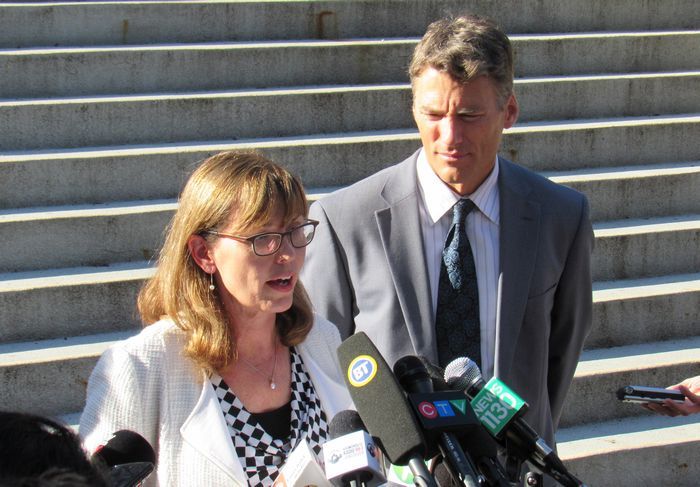Vancouver property owner suing city over $30,000 empty home tax

Credit to Author: Keith Fraser| Date: Fri, 27 Sep 2019 22:02:52 +0000
A Vancouver property owner is taking the city to court after being hit with a $30,000 vacancy tax bill that he says failed to take into account the fact that the building in question was being demolished and rebuilt.
Dr. Abdorrahim Dahi, a Richmond psychiatrist who owns a property development company, says that his company, Dana Inc., purchased a multiple-dwelling building at 1753 West 11th Ave. in March 2015.
When the company bought the lot, they made plans to demolish the existing building and build a new multiple-dwelling building in its place, says Dahi’s petition filed in B.C. Supreme Court.
Dahi says that on Nov. 28, 2016, Dana Inc. was issued a building permit by the city to begin demolishing the building and was issued another permit in August 2017 to continue the demolition and begin construction.
Meanwhile, he had contacted the city and changed the company’s mailing address, a change that was reflected in the August 2017 building permit, he says. But unbeknownst to him, in 2018 the city sent three vacancy tax notices regarding the property to the old address, which no longer had any connection to the company, says Dani.
He says he only learned that he’d been handed a $30,000 vacancy tax bill in January this year when he checked the status of the 2018 property taxes.
The vacancy tax, also known as the empty home tax, was brought in as a measure to return empty or underused properties to use as long-term rental homes for people who live and work in the city. Every year property owners are required to sign a declaration on the occupancy status of their homes.
The applicable bylaw says exemptions can be allowed for developments for which permits have been issued by the city and which in the opinion of the city’s chief building official are being carried out diligently and without unnecessary delay.
The tax amounts to one per cent of the assessed value of the property.
Dahi says that when he learned of the tax, he demanded an explanation, claiming he’d been erroneously assessed by the city.
In one of his emails to the city, attached to an affidavit, he tells an official only identified by the name “Don” that he did not receive any notice of the tax and suspects that it had been sent to the wrong address.
“The city is well aware that the old house was demolished two years ago because we received the city’s permission to do so,” Dahi says in the Jan. 24 email. “There was no house there to be empty or occupied. That made us not to even expect empty-house notice. I appreciate you rectifying this matter with the authorities at city ASAP.”
In a response to the email, the official named “Don” tells Dahi that the property had been deemed vacant because the city did not receive the property status declaration by the March 5, 2018, deadline and notes that the deadline to file a notice of complaint on April 16, 2018, had also expired.
The email from “Don” says that the city granted an extension for homeowners to file a late notice of complaint for undeclared properties until Dec. 31, 2018.
“Council approved the bylaw as it is currently written and therefore no one has the authority to exempt your property based on personal circumstance, not even mayor or council, unless council enacts an amendment to the bylaw,” adds the email. “We are sympathetic to your situation. Unfortunately, no further appeal is available. The vacancy tax levy (and, if applicable, its later payment penalties) stands.”
Dahi is seeking to quash the decision to disallow a complaint and wants a declaration that his property is exempt from the tax. In an email, a city official said there would be no comment. There have been at least four other legal challenges filed about the vacancy tax.